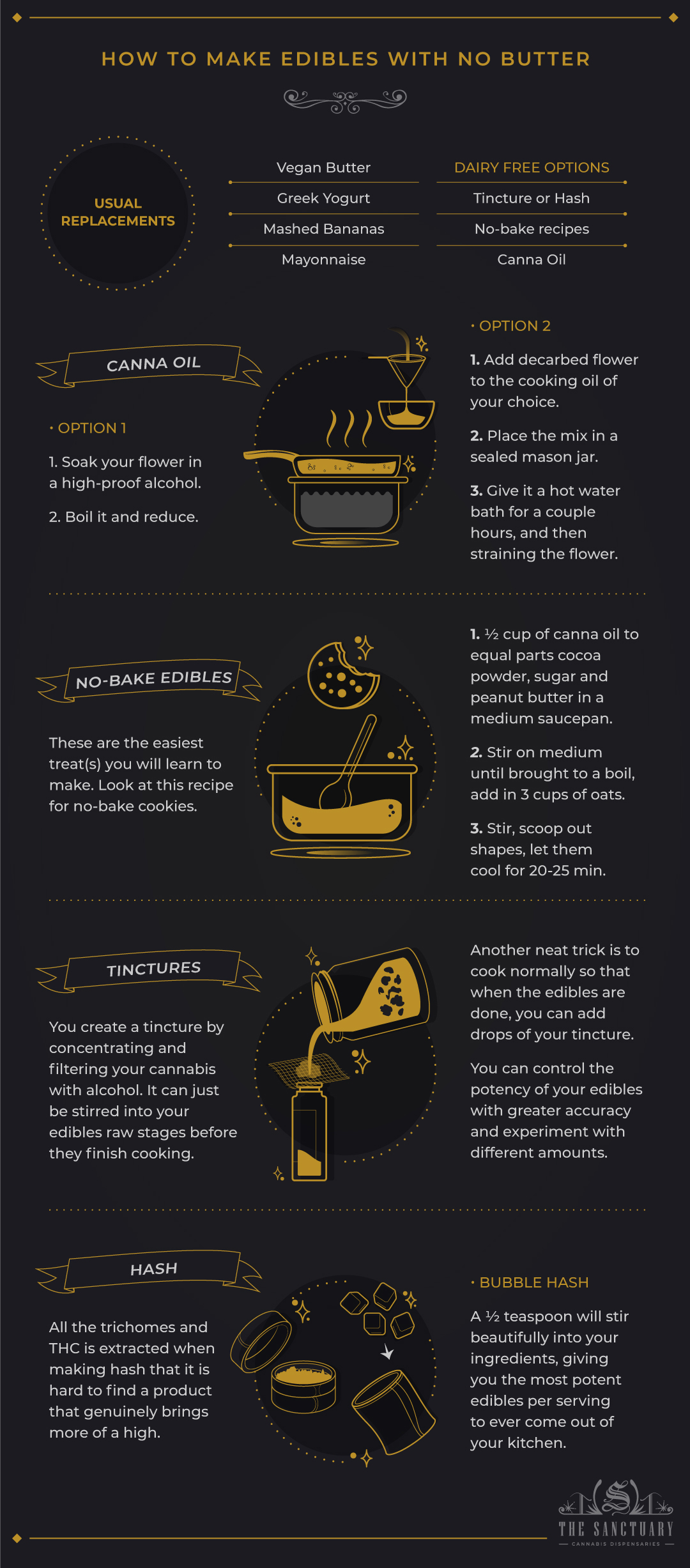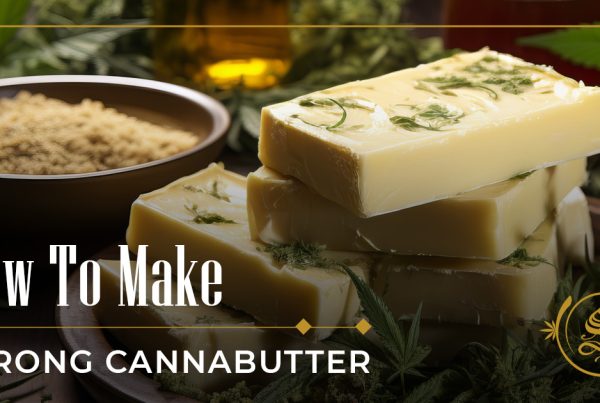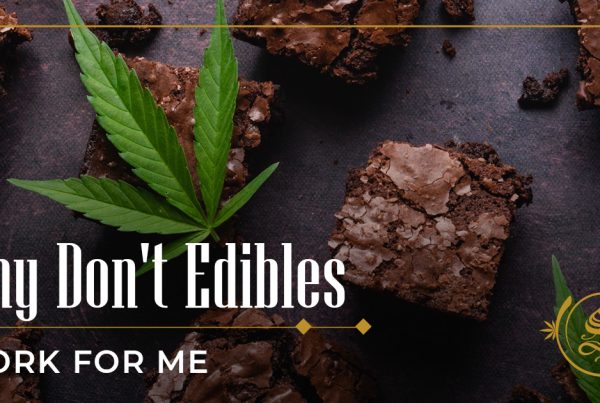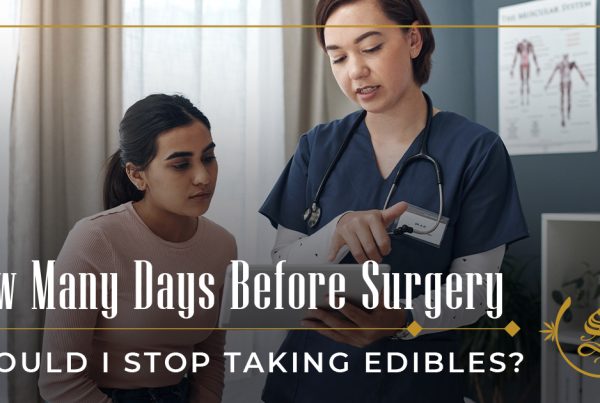For cannabis consumers, both new and ‘experienced’, edibles are one of the holy grails of consumptions for many reasons. They do not require any smoking or rolling and they are extremely delicious, versatile and easy to make at home.
Versatile is the keyword seeing as how any recipe for edibles under the sun can be customized to your liking and still come out amazing. Butter and Cannabutter is such a common ingredient in edible desserts that it seems like it is a requirement. Surprisingly, this is not the case.
Do Edibles Need Butter?
The simple answer is: No, edibles do not need butter. Cannabutter may be an essential and delicious ingredient for the average homecook with a ‘green’ thumb, but it is not actually required for any infused recipes, not even desserts.
This is very good news for vegan cooks or just anyone with allergies or intolerance to dairy.
The food science of butter is pretty interesting, but its two main purposes are for adding flavor and volume to your baked goods. However, you can still have the perfect consistency and some amazing flavors without it, so do not worry about making edibles without cannabutter.
Can I use raw weed?
It may seem like the easiest way to make edibles or infused foods would be to make the food normally, until you don’t and you pour in raw weed.
Hilarious as that may be, it will not give you the results you are looking for. Eating flower in its raw stage is exactly what it sounds like: eating a flower. It is not psychoactive because there is no THC in raw weed, it is too late to get the THC if you mix it raw with your ingredients and the worst part? It would not taste very good.
All weed that you plan to cook with needs to be saturated, or decarbed at the very least, so that it can be used properly and give you all of what makes edibles great.
How to Make Edibles with no Butter

Just like a traditional recipe, a number of ingredients can be substituted for butter. The most obvious of these is vegan butter (which you can infuse just like the regular stuff), but say it is unavailable where you live: Greek yogurt, mashed bananas or even mayonnaise are the most common substitutes, but we can keep the list simple by covering vegan or dairy-free options.
These would include, but are not limited to, tincture, hash, no-bake recipes (should they not contain dairy) and of course, canna oil. No matter what you choose, you will still get the homemade edibles you have always wanted without losing any quality by not using butter.
Canna Oil
The diamond standard of cannabutter substitutes. Depending on the type of edible you prepare, you may be using oil already, so why not kill two birds with one stone and infuse the oil?
Turning your pantry’s cooking oil into cannabis, by means of infusion, is perfect for baking edibles without getting any undesired flavors. In fact, it would be quite the opposite: Imagine fresh, edible brownies made with infused coconut oil or any treats you like with added coconut flavor. Endless flavor possibilities!
Thankfully, making the oil is as easy as either soaking your flower in a high-proof alcohol before boiling and reducing, or adding decarbed flower to the cooking oil of your choice before placing the mix in a sealed mason jar, giving it a hot water bath for a couple hours, and then straining the flower. Just like the recipe or strain you end up choosing for your edibles, make sure that they all have the right amount of canna oil.
No-bake edibles
Out of every recipe ever covered in this blog, maybe the exception of cannabis oil just because there are only two ingredients, no-bake edibles are the easiest treat(s) you will learn to make. If you don’t believe us, look at this recipe for no-bake cookies:
- ½ cup of canna oil to equal parts cocoa powder, sugar and peanut butter in a medium saucepan.
- Stir on medium until brought to a boil, add in 3 cups of oats.
- Stir, scoop out into ‘cookie’ shapes, let them cool for 20-25 minutes
- Enjoy!
Even the most ‘culinary challenged’ enthusiasts can make this recipe and it can literally be done in less than an episode of your favorite show. You can optionally add milk to your no-bake cookies or other treats, but there is always soy or almond milk if you prefer or if you need to.
Tincture
Much like a basic canna oil or hash, you create a tincture by concentrating and filtering your cannabis with alcohol. The fact that it is mainly taken sublingually or by way of drinking makes it clear that a tincture can just be stirred into your edibles raw stages before they finish cooking.
Another neat trick to infuse your edibles is to cook them normally so that when they are done, you can add drops of your tincture to them like Juicy Drop pops. You can control the potency of your edibles with greater accuracy and experiment with different amounts for future batches.
Hash
If you’re familiar with making bubble hash or even better, if you have some on deck, then your edibles are in for a treat. Hash might as well be ‘if straight THC was a product,’ which is essentially all that hash is.
Literally all the trichomes and THC is extracted when making hash that it is hard to find a product that genuinely brings more of a high. A ½ teaspoon that crumbly masterpiece of an extract known as bubble hash will stir beautifully into your sugar or wet ingredients, giving you the most potent edibles per serving to ever come out of your kitchen.
Are these substitutes less potent?
If you follow the measurements, decarboxylation and the extraction process(es) as you would with butter, your substitutes will be just as potent. It all comes down to what you infuse with your ingredients and how much weed you put in the mixture.
Beyond that, there is virtually no difference in potency; especially if you infuse your other ingredients with the same strain. If anything, ingredients like hash, canna oil or even tincture could actually be more potent than cannabutter due to the concentration of THC. Whatever the case may be, you can not go wrong with any of these substitutes for butter or cannabutter.






